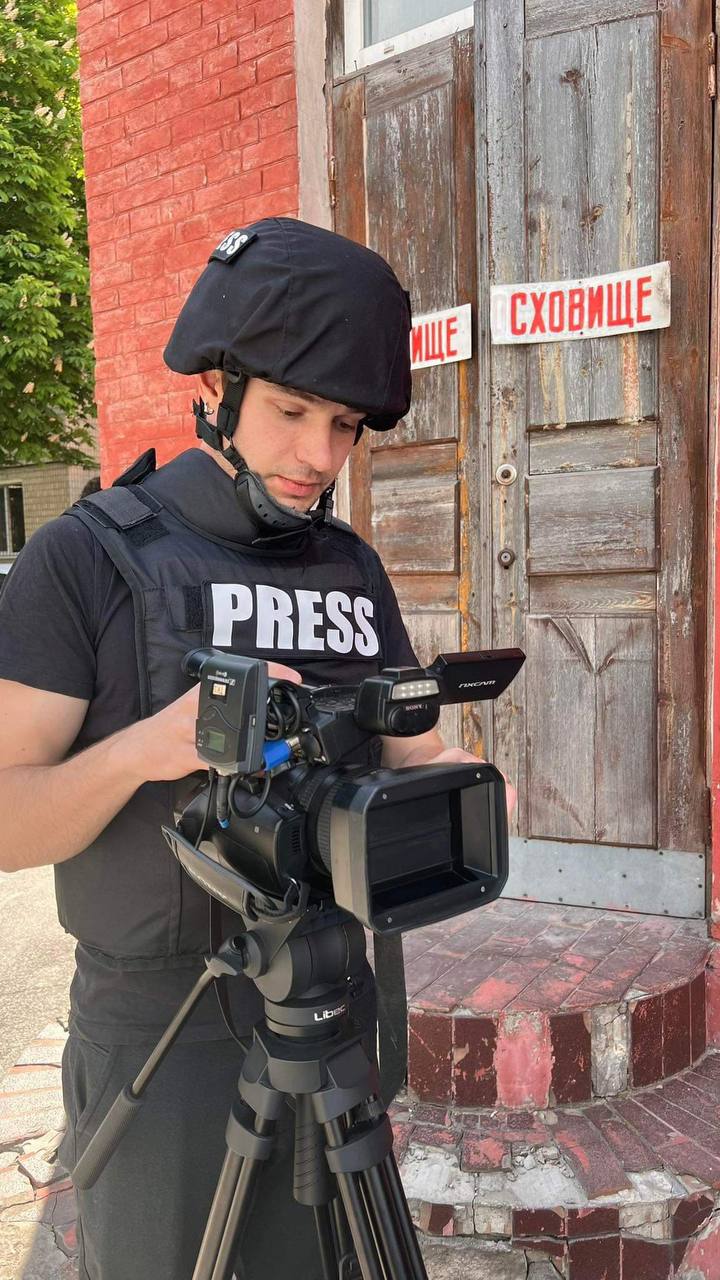Talent shortage at Pavlohrad TV and Radio Company
On the night of May 1, 2023, the city of Pavlohrad in the Dnipropetrovsk region (100 km from the frontline) shuddered from a large-scale rocket attack. 34 people were injured, more than 300 houses and 24 educational institutions were damaged. Despite the stress and risks, the team of Pavlohrad Television and Radio Company split into three film crews to document Russia’s war crimes against civilians.
From the first day of the full-scale invasion, Pavlohrad radio started broadcasting emergency alerts to inform the citizens about the missile threats. During the first months of Russia’s invasion, the employees of the company took turns during night shifts to ensure 24-hour alerting. However, they were quickly burning-out physically and emotionally. Before the full-scale invasion, the media had 25 employees, now there are only 20. Five workers were mobilized to the army. Naturally, this has affected the operations of the company. CEO Ruslan Kerimov says: “We substitute professional cameramen with the employees who do not have relevant skills but who will not be mobilized to the army. Also, we need to hire a chief broadcast engineer but there are no such specialists in the town.”
Since the frontline has been moving closer to Pavlohrad, the frequency and duration of air raids has been increasing. Pavlohrad radio must be ready to inform the citizens about them. However, during power cuts, the media can only keep broadcasting for 1-3 hours because the generator it has does not cover the needs of the studio. Besides, Pavlohrad TV and Radio lacks funds for generator fuel. At the same time, for many local residents radio remains almost the only source of news and alerts when there is no electricity.
Nevertheless, Pavlohrad TV and Radio delivers important news and shoots reports from the frontline. It also produces content about the war, Russian fakes and propaganda, experiences of internally displaced people (IDPs) etc. In fact, more than 30,000 IDPs are officially registered in Pavlohrad with a population of 100,000 people. To keep informing its audience about missile threats and to provide it with latest news during power cuts, the media requires generators, power charging stations and fuel.
